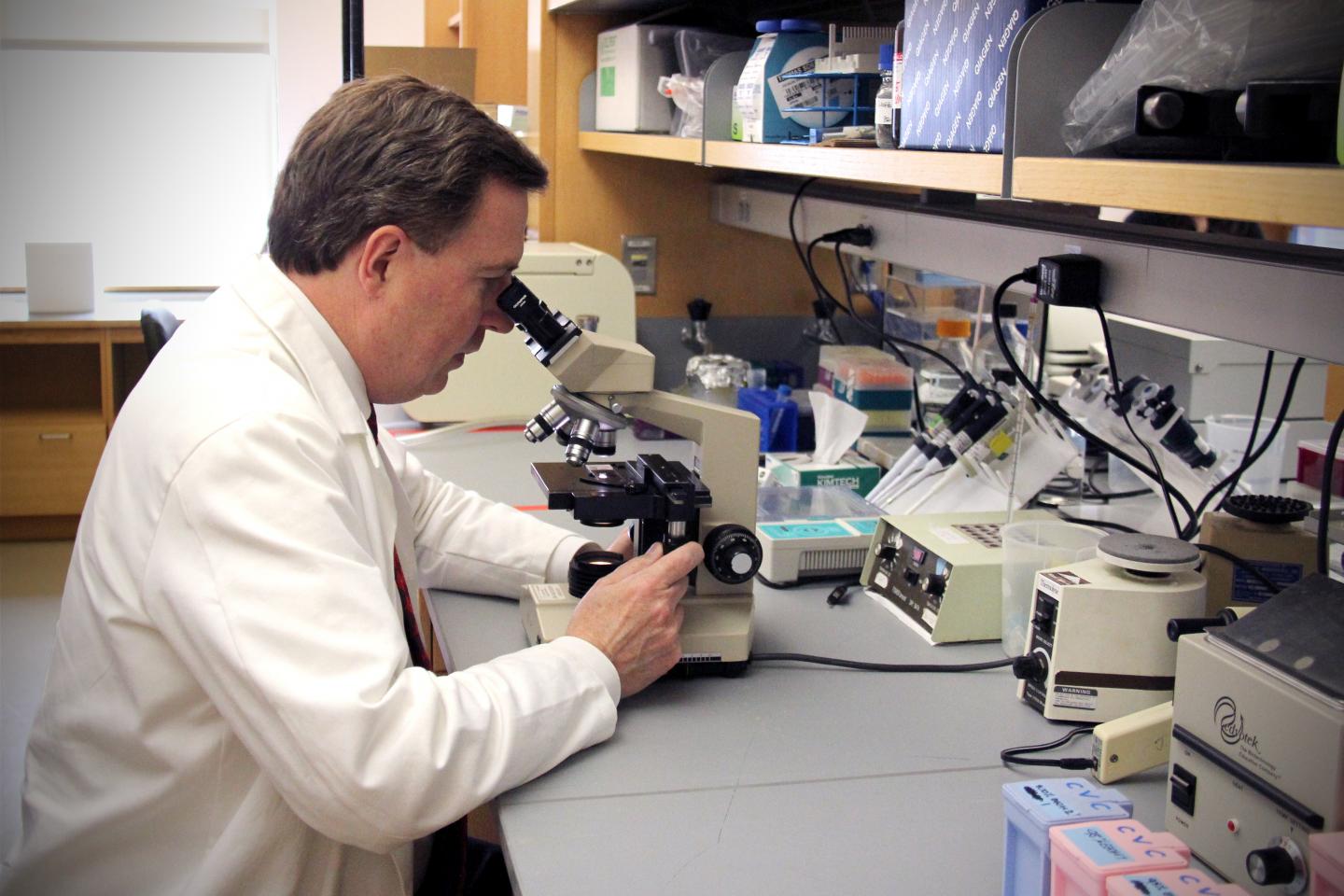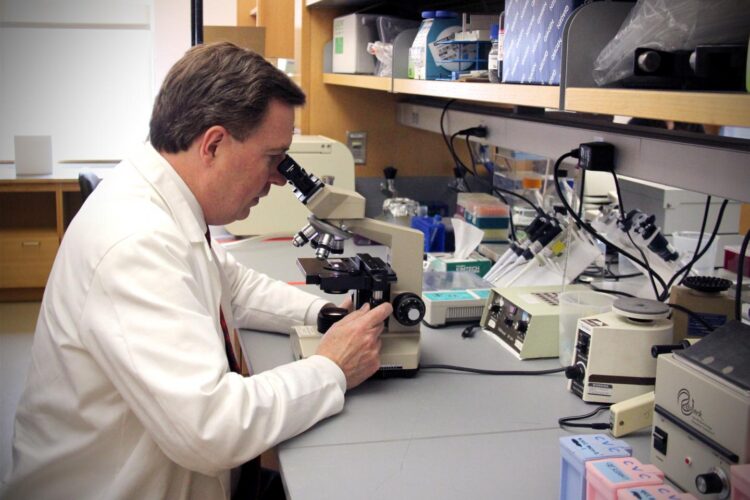
Credit: VCU Massey Cancer Center
The hormone prolactin has long been understood to play a vital role in breast growth and development and the production of milk during pregnancy. But a pair of recent studies conducted at VCU Massey Cancer Center finds strong evidence that prolactin also acts as a major contributor to breast cancer development and that the hormone could inform the creation of targeted drugs to treat multiple forms of the disease.
Hormones have proteins on their cell surface called receptors that receive and send biological messages and regulate cell function. Through research published in npj Breast Cancer, VCU Massey Cancer Center researcher Charles Clevenger, M.D., Ph.D., and his lab discovered a new, altered form of the prolactin receptor called the human prolactin receptor intermediate isoform (hPRLrI) that directly drives breast cancer. The researchers observed that this modified version of the prolactin receptor interacted with other forms of the receptor to turn benign breast cells into malignant ones, and the presence of hPRLrI in breast cancer cells was associated with triple negative breast cancer, a rapid rate of cell reproduction and poor outcomes.
“This research challenges the dogma that prolactin only functions in milk production and highlights the unique discovery that the hormone can contribute to breast cancer,” said Clevenger, who is the associate director for precision oncology, Carolyn Wingate Hyde Endowed Chair in Cancer Research and member of the Cancer Biology research program at Massey as well as chair of the Department of Pathology at the VCU School of Medicine. “By understanding how the prolactin receptor correlates to breast cancer, novel therapeutic and prognostic agents can be developed to effectively treat the disease.”
Clevenger said these findings support the argument that future approaches in drug design may need to specifically target hPRLrI, and could ultimately inform advanced diagnostic applications for breast cancer as well.
Through a separate study published in Endocrinology and prominently showcased on the journal’s website as the Featured Article for a week, Clevenger’s lab substantially prevented tumor growth in preclinical models of ER-positive breast cancer using an HDAC6 inhibitor, a drug that blocks a protein associated with prolactin.
Clevenger has previously found success in the lab stunting breast cancer growth by deactivating Stat5, the genetic pathway responsible for the production of prolactin.
In this new research, the scientists found that the prolactin-regulating function of Stat5 is dually dependent on the enzyme histone deacetylase-6 (HDAC6) and the gene HMGN2. They also discovered that the estrogen receptor (ER), a hormone widely believed to influence breast cancer development, was highly and almost exclusively interactive with Stat5 at sites where HDAC6 and HMGN2 were also present. This suggests that both the estrogen receptor and prolactin receptor can cooperate through the activation of Stat5 to initiate the development of breast cancer. Treating ER-positive breast cancer cells with an HDAC6 inhibitor drastically hindered tumor progression.
“Global analysis of gene expression again revealed that prolactin is closely associated with breast cancer growth and could be subdued by treatment with an HDAC6 inhibitor,” Clevenger said.
Clevenger has dedicated a significant amount of his scientific career to understanding how prolactin might have implications in the growth and progression of breast tumors. In future studies, he plans to further test and develop breast cancer drugs using prolactin as a primary target.
###
Clevenger collaborated on the npj Breast Cancer study with Chuck Harrell, Ph.D., member of the Cancer Biology research program at VCU Massey Cancer Center; Michael Idowu, M.P.H., M.B.B.S., Massey research member; Jacqueline Grible, Ph.D., Shannon Hedrick, Patricija Zot, M.D., and Alicia Woock, of the VCU School of Medicine; and Amy Olex, M.S., of the VCU C. Kenneth and Dianne Wright Center for Clinical and Translational Research.
Clevenger collaborated on the Endocrinology study with Harrell, Justin Craig and Tia Turner from the VCU School of Medicine.
Media Contact
Blake Belden
[email protected]
Original Source
https:/
Related Journal Article
http://dx.





